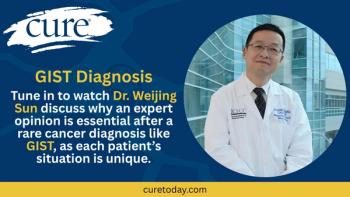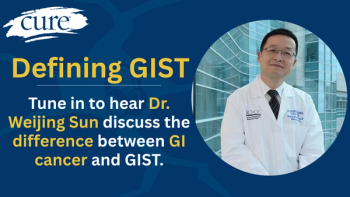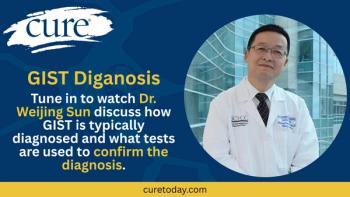
Patients need long-term monitoring after gastrointestinal stromal tumor surgery, with some requiring extra treatment or genetic testing to lower recurrence risk.
Sun is the Sprint Professor of Medical Oncology, as well as a professor of Medical Oncology and Cancer Biology, and the director of Medical Oncology Division at the University of Kansas School of Medicine. He also serves as the associate director of the University of Kansas Cancer Center.

Patients need long-term monitoring after gastrointestinal stromal tumor surgery, with some requiring extra treatment or genetic testing to lower recurrence risk.

Getting an expert opinion is essential after a rare cancer diagnosis like GIST, as each patient’s situation is unique, according to Dr. Weijing Sun.

Unlike most GI cancers, GIST starts in supportive stromal tissue, not surface cells, and is classified as a sarcoma, says Dr. Weijing Sun.

Dr. Weijing Sun discussed how GIST is typically diagnosed, as well as what tests are commonly used to confirm the diagnosis.